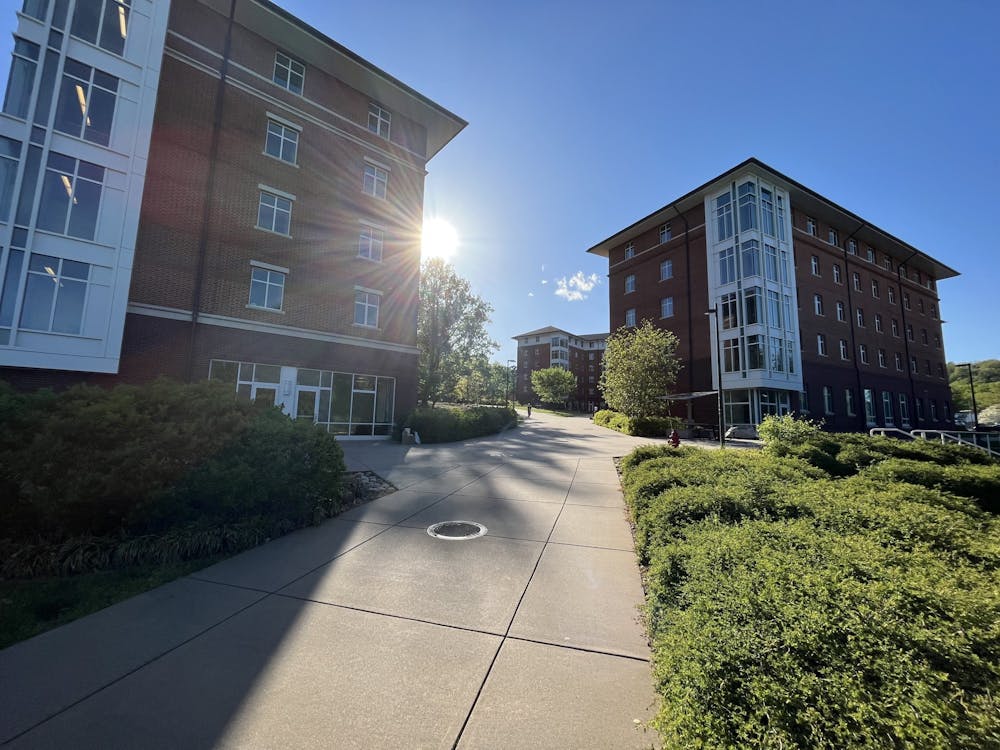Resident advisors serve as the first line of support for students living in on-Grounds housing — RAs are expected to act as a peer advisor for their residents, while also serving as residents’ first point of contact in many emergency situations. The seriousness of the issues they face, coupled with the nature of living in the same place in which they work, means that some RAs feel overwhelmed and have sought additional institutional measures for support.
There are 240 resident staff members that make up Housing and Residence Life, with a resident advisor on each floor in resident dorms and senior advisors who oversee each dorm building. Over 7,000 students live in on-Grounds housing.
Mina DiPaula, resident advisor and second-year College student, said they were inspired to be an RA because they wanted to help other students. During their first year, DiPaula’s RA helped them adjust to college and meet new people despite the fact that most activities were virtual due to the COVID-19 pandemic.
“Really, it was just that he was willing to talk when I needed it,” DiPaula said. “If I was going through a hard time I could just text him and be like, ‘Hi, can we get lunch?’ and then he would go get lunch with me.”
Inspired by their own RA, DiPaula said that being there for residents is their favorite part of the job — although they say that this responsibility is difficult because it is a constant expectation.
“It’s honestly harder to do than I thought it would be,” DiPaula said. “Because I’m definitely the type of person that loves to talk to people, to always be there for people, but it’s also a little hard to just be available 24/7 and on all the time.”
RAs are the first point of contact in many emergency situations that happen in dorms. In cases of drug overdose or alcohol poisoning, it is the responsibility of the RA to call the police. If a resident is dealing with a mental health crisis, they often turn to their RAs first.
In addition to their regular duties, RAs were responsible for enforcing COVID-19 guidelines — such as gathering restrictions — in dorms during the pandemic. Many RAs said they felt uncomfortable enforcing these guidelines, further noting that they struggled to connect with residents as a result of social distancing requirements and online instruction.
Andrew Chin, vice-chair of training and development for Housing and Residence Life and fourth-year College student, said he also decided to be an RA because he wanted to support first-year students as they transitioned into college. Chin was an RA last year, but now supervises other RAs and works with HRL administration to create programming and make changes within the program.
Chin said HRL experienced staffing shortages this year, which meant there were fewer administrative members to support RAs. Nonetheless, he noted that staffers actually need more support to help balance the responsibilities of being a student and an RA. During his time as a vice chair, Chin has tried to initiate programming workshops to be someone that other staffers could come to for support.
“I’ve really tried to emphasize that staffers really need to lean on each other because, again, we probably need more of that support than we’re given,” Chin said.
Currently, HRL’s Accountability Council meets with staffers to evaluate performance and implement any necessary plans for improvement. According to DiPaula, senior resident advisors hold drop-in office hours to support RAs, but — like RAs — SRs can only provide a minimal level of support while balancing their own responsibilities as students. While RAs act as mentors for students in a specific part of a residence area, SRs oversee an entire building or residence area.
DiPaula also said the support offered by HRL focuses on rhetoric about self-care, rather than providing concrete mental health resources to RAs.
“Preaching self-care is not enough when you’re placing a responsibility on a 19-year-old to be responsible for the lives of other people,” DiPaula said.
Chin says that resident advisors need HRL administration to show more appreciation and understanding about their concerns, as well as acknowledge how draining the responsibilities of the job can be.
“I think a lot of the appreciation [for staffers] has fallen onto the student leadership, to show that we love what the RAs are doing,” Chin said.
Chin has also worked on other initiatives to improve the program in the last year. One of his personal priorities is improving compensation for staffers — resident advisors receive free housing and a partial meal plan, but the meal plan only covers 100 meals and $140 plus dollars per semester. A traditional first-year meal plan includes unlimited daily access to dining halls and $150 plus dollars. Chin said that these efforts were successful, as they were able to increase the meal plan to cover more meals and include more Flex Dollars. Chin also worked to improve the program’s diversity, equity and inclusion training to make it more holistic and applicable to all members of HRL.
DiPaula says that during the year, they have made an effort to care for themself by setting boundaries and — unless a resident was in crisis — making sure to set time for themself.
“That was something that worked for me, just in that I knew if that person was in crisis, I would still be there to help them — so I didn’t have to be in fear of not being there for them immediately if they needed me to be,” DiPaula said. “But I still got that time to myself if I needed.”







